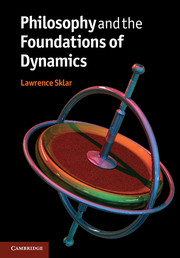Book contents
- Frontmatter
- Contents
- Chapter 1 Introduction
- Chapter 2 The pre-history of classical dynamics
- Chapter 3 The astronomical revolution
- Chapter 4 Precursors to Newtonian dynamics
- Chapter 5 The Newtonian synthesis
- Chapter 6 Philosophical aspects of the Newtonian synthesis
- Chapter 7 The history of statics
- Chapter 8 The development of dynamics after Newton
- Chapter 9 The “Newtonian” approach after Newton
- Chapter 10 From virtual work to Lagrange's equation
- Chapter 11 Extremal principles
- Chapter 12 Some philosophical reflections on explanation and theory
- Chapter 13 Conservation principles
- Chapter 14 Hamilton's equations
- Chapter 15 Canonical transformations, optical analogies and algebraic structures
- Chapter 16 The search for new foundations
- Chapter 17 New directions in the applications of dynamics
- Chapter 18 Spacetime formulations of Newtonian dynamics
- Chapter 19 Formalization: mass and force
- Chapter 20 Relationist dynamics
- Chapter 21 Modes of explanation
- Chapter 22 Retrospective and conclusions
- References
- Index
Chapter 1 - Introduction
Published online by Cambridge University Press: 05 December 2012
- Frontmatter
- Contents
- Chapter 1 Introduction
- Chapter 2 The pre-history of classical dynamics
- Chapter 3 The astronomical revolution
- Chapter 4 Precursors to Newtonian dynamics
- Chapter 5 The Newtonian synthesis
- Chapter 6 Philosophical aspects of the Newtonian synthesis
- Chapter 7 The history of statics
- Chapter 8 The development of dynamics after Newton
- Chapter 9 The “Newtonian” approach after Newton
- Chapter 10 From virtual work to Lagrange's equation
- Chapter 11 Extremal principles
- Chapter 12 Some philosophical reflections on explanation and theory
- Chapter 13 Conservation principles
- Chapter 14 Hamilton's equations
- Chapter 15 Canonical transformations, optical analogies and algebraic structures
- Chapter 16 The search for new foundations
- Chapter 17 New directions in the applications of dynamics
- Chapter 18 Spacetime formulations of Newtonian dynamics
- Chapter 19 Formalization: mass and force
- Chapter 20 Relationist dynamics
- Chapter 21 Modes of explanation
- Chapter 22 Retrospective and conclusions
- References
- Index
Summary
The growth of theories
A very naïve view of science might go something like this: Scientists encounter a range of observable phenomena for which they have no explanatory account. Hypotheses are generated from the imaginations of the scientists who seek to explain the phenomena in question. These hypotheses are tested against the experimental results. If they fail to successfully account for those results, the hypotheses are rejected as unsatisfactory. But if they succeed in predicting and explaining that which is observed, they are accepted into the corpus of scientific belief. Then scientific attention is turned to some new domain of, as yet, unexplained phenomena.
This simple-minded picture of science has been challenged for a variety of reasons. Some are skeptical regarding the possibility of characterizing theory-independent realms of observational data against which hypotheses are to be tested. Others have noted the way in which the testing of hypothesis by data is a subtle matter indeed. It has often been noted, for example, that even our best, most widely accepted fundamental theories often survive despite the existence of “anomalies,” observational results that are seemingly incompatible with the predictions of the theories.
- Type
- Chapter
- Information
- Philosophy and the Foundations of Dynamics , pp. 1 - 11Publisher: Cambridge University PressPrint publication year: 2012



